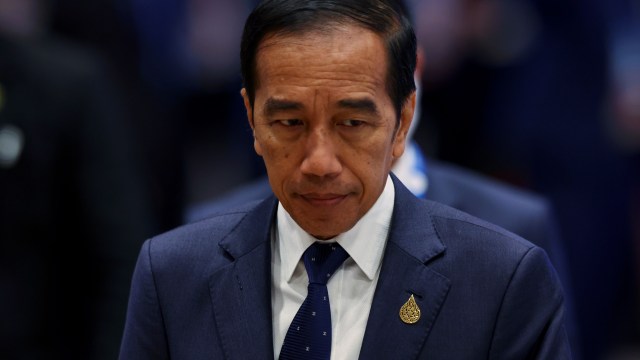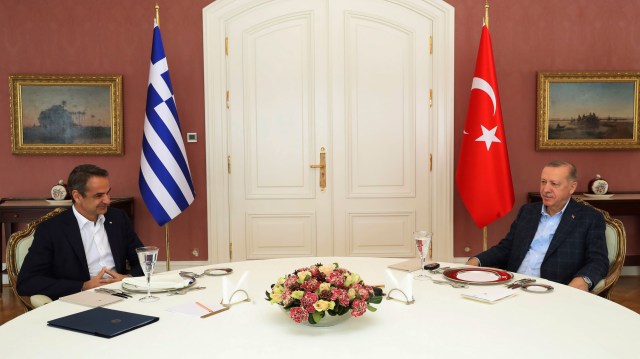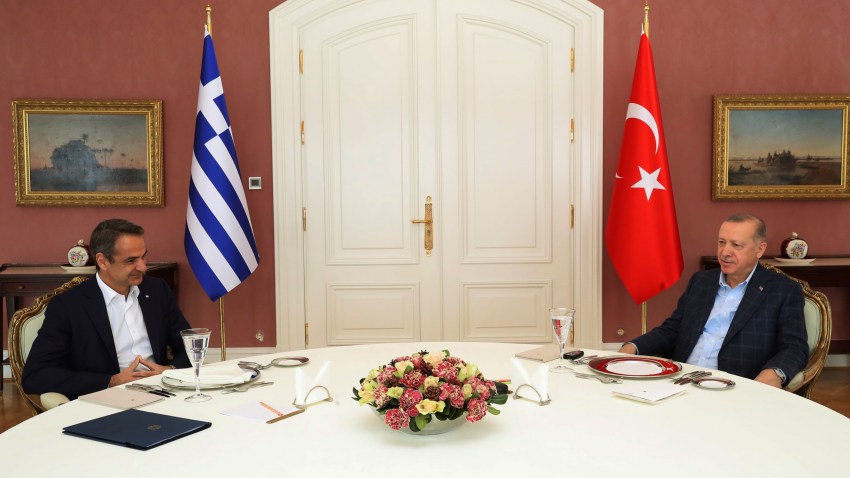Hello everyone. Today at WPR, we’re covering the legacy Indonesian President Joko Widodo will leave behind and how Global South countries are taking multilateralism into their own hands.
Read all of our latest coverage here.
Now, here’s our take on today’s top stories:
China-Vietnam: At a meeting with his Vietnamese counterpart in Beijing on Tuesday, China’s defense minister said Beijing is willing to work with Hanoi to strengthen relations and cooperation between the countries’ respective militaries. (Reuters)
Our Take: The meeting in Beijing comes just days after a U.S. aircraft carrier made a port call in Vietnam, a rare and symbolic visit that underscored deepening defense ties between Hanoi and Washington. Hanoi has also significantly modernized and upgraded its armed forces in recent years, largely in response to China’s encroachments in the South China Sea, including in Vietnam’s maritime exclusive economic zones.
Still, the scheduling of the meeting so closely after the port call also signals that while Vietnam may be increasingly uncomfortable with China’s assertiveness, Hanoi is hedging its bets by balancing ties and refusing to pick a side in the U.S.-China rivalry.
*****
Russia mutiny: The aftermath of Yevgeny Prigozhin’s attempted mutiny over the weekend continues to dominate headlines, especially as the Kremlin moves to reorganize its security forces. But while outside observers have been quick to say that the mutiny irrevocably weakened Russian President Vladimir Putin, that could very well be a misreading of how the Putin regime functions.
In short, it’s still premature to draw conclusions about the strength of Putin’s grip on power in Russia.
*****
You can read the rest of today’s News Wire, a curated selection of one must-read article from every region, here.

Though he is unable to run in next February’s presidential election after having served his constitutionally permitted two terms in office, Indonesian President Joko Widodo is by no means a lame duck preparing to fade into the shadows.
As Erin Cook writes, the legacy Jokowi, as he is popularly known, will leave behind after a decade as president will be complex and even perplexing.

Indonesia’s Jokowi Will Leave Behind a Legacy of Disappointment
Unable to run in next year’s election due to the constitutional two-term limit, Indonesian President Joko Widodo will leave behind a complex legacy. Jokowi took office as a scrappy outsider to national politics pledging progressive reform. He leaves as an entrenched insider who rarely delivered on those initial promises. Read more.
While the Biden administration reportedly crafts a proposal to reform the U.N. Security Council, Global South countries are continuing to strengthen South-South cooperation and parallel multilateral organizations.
In a nutshell, Aude Darnal writes, the world isn’t waiting for the U.S. to strengthen multilateralism.
The Global South Is Taking the Lead in Shoring Up Multilateralism
The Biden administration’s proposal for U.N. Security Council reform looks likely to protect the veto power of the council’s five permanent members, signaling a lack of true commitment to meaningful reform and a balanced international system. But Global South countries are not waiting for Washington to strengthen multilateralism. Read more.

Question of the Day: The armed forces of the Myanmar military junta now has how many combat soldiers remaining, according to one expert’s estimate?
Find the answer in the latest WPR Weekly Quiz, then read Joshua Kurlantzick’s briefing on why the junta is losing Myanmar’s civil war.

Turkish President Tayyip Erdogan and Greek PM Kyriakos Mitsotakis—both fresh off winning respective reelections—will meet on the sidelines of next month’s NATO summit.
The two countries have been at odds for decades, but as Alexander Clarkson wrote in April, a shift from confrontation to partnership would be beneficial not just for the region, but also for Europe as a whole.

Europe Has a Lot Riding on Turkey’s—and Greece’s—Elections
April 26, 2023 | Elections in Turkey and Greece could create an opportunity to improve Ankara’s ties with Europe damaged by Erdogan. Read more.
*****
Thailand’s leading prime ministerial candidate Pita Limjaroenrat, of the progressive Move Forward party, says he has enough support from the upper house to become PM.
The country’s opposition trounced parties allied with the military in last month’s election, but it hasn’t been clear that they would be able to form a government, since at least some of the mostly military-appointed Senate will have to approve the new PM.
Thailand’s Opposition Will Need More Than Votes to Win Upcoming Elections
April 28, 2023 | Amid a battered economy, Thailand’s opposition is gaining ground. But a managed democracy means the military could subvert elections. Read more.
That’s all for today’s Daily Review. Be on the lookout for stories on Germany’s first-ever national security strategy and on Netflix’s “The Diplomat.”
Have a great day,
Jakob Cansler
More From WPR
- James Bosworth on Peru’s dengue outbreak.
- Jonathan Fenton-Harvey on Gulf states’ renewable energy push.
- Paul Poast on the power of Big Tech in international politics.
- Yasir Zaidan on the conflict in Sudan.

